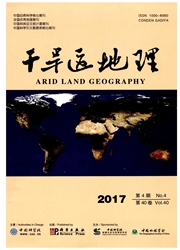

 中文摘要:
中文摘要:
首先从分析沙漠化的物理机制入手,将生态建设政策对沙漠化的作用以政策指数PIX来表示,分解为空间广度PSS和时间强度船F两个变量,PIX=(PSS+PEF)/2,定量计算政策指数与沙漠化变化的相关性。其次以公共价值为基本框架,构建沙漠化治理政策的执行过程+生态效果的绩效评价体系,从政策过程的“公平性”、对“合作生产”主体的尊重性、政府部门管理的“效率性”、生态效果的“可持续性”、政策对沙漠化变化的相关性等方面提取指标因子,定量评价沙漠化治理政策的绩效。以宁夏盐池县草地禁牧政策为例进行研究。结果表明:禁牧政策与沙漠化面积减少显著相关,草地禁牧政策公共价值绩效得分0.3783,效果较差。因此,提出的基于公共价值的沙漠化治理政策绩效评价指标和模型都是可行的。
 英文摘要:
英文摘要:
Since the end of the 20th century, large-scale ecological construction policies has been implemented in China and the subsequent performance evaluation of the policies is an important issue which is worthy of deeper inquiry. The current performance evaluation of ecological construction policies rarely involves the government, farmers and other behavior subjects in relation to their course of action regarding the eco-construction process, even it is un- able to explain the crucial issues such as whether ecological construction process is fair, how governance efficiency is and whether the ecological result is sustainable. Firstly, this paper starts from analyzing the physical mechanisms of desertification, it offers tion policies have had on a word of policy index PIX and with which to indicate the effect that ecological construcdesertification, then the policy index is decomposed into two variables, which are spatial span PSS and time intensity PEF, PIX = (PSS + PEF ) /2. Taking the grassland grazing prohibition policy in Yanchi County of Ningxia as an example to calculate the relevant coefficient of the grass grazing prohibition policy and desertification change and a score was obtained with -0.746, indicating that it has got through the significant α = 0.01 inspection and the grassland grazing prohibition policy and the desertification area reduction related significantly. Secondly the project takes the public value as a basic framework to build a system which combines the execution process of desertification control policy and the performance evaluation of the ecological effects, then a quantitative evaluation was made on the performance of the desertification control policy through extracting the index factors from some aspects such as the "fairness" of the policy process, respect for the subject of "co-production", the manage- ment "efficiency" of the government departments, the "sustainability" of ecological effects and the relevance of eco- logical policy on desertification change and
 同期刊论文项目
同期刊论文项目
 同项目期刊论文
同项目期刊论文
 期刊信息
期刊信息
